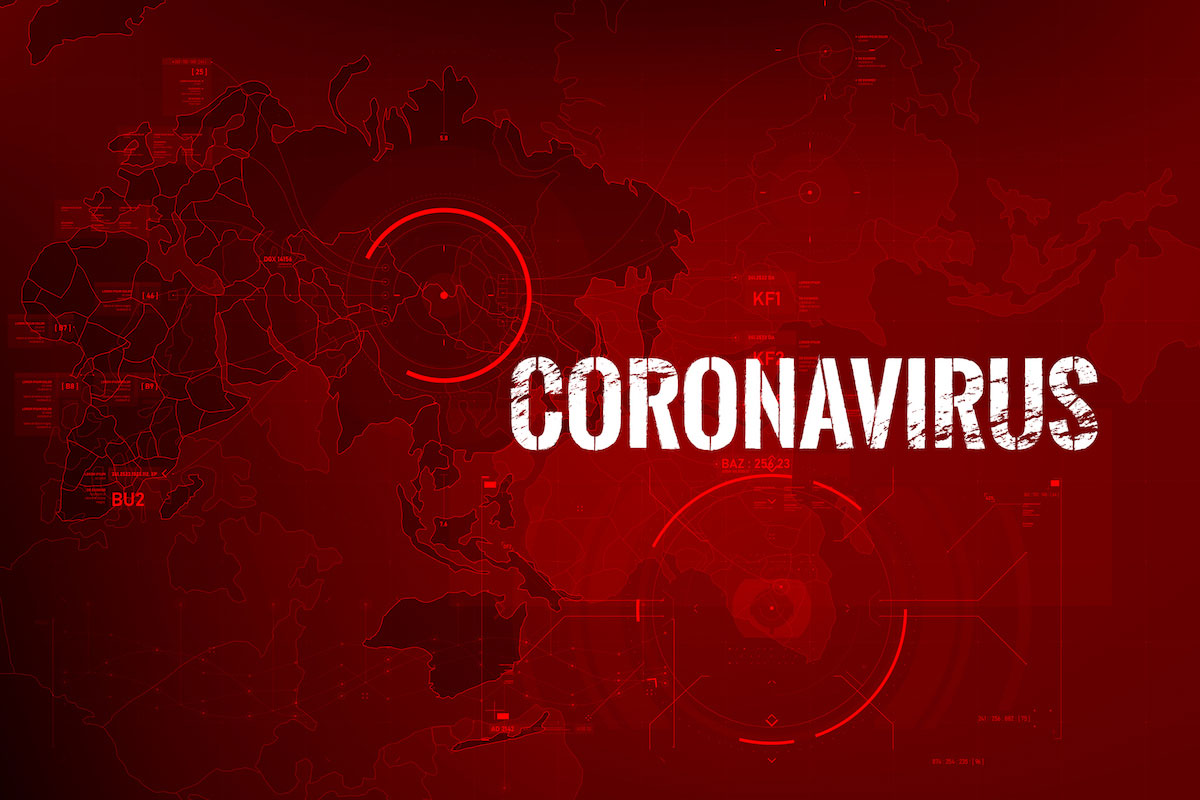<< Back
Hartford Hospital Patient First COVID-19 Case in Area

March 14, 2020
A Rocky Hill woman in her 80s being treated at Hartford Hospital tested positive Friday for COVID-19, the first confirmed coronavirus case in the Hartford area.
Hartford HealthCare would like to offer the community this information from the Centers for Disease Control and Prevention if you eventually become mildly ill with the coronavirus, if you think you are sick and how best to avoid being infected:
If You Are Sick
Stay home except to get medical care: People who are mildly ill with COVID-19 are able to isolate at home during their illness. You should restrict activities outside your home, except for getting medical care.
- Avoid public areas: Do not go to work, school, or public areas.
- Avoid public transportation: Avoid using public transportation, ride-sharing, or taxis.
- Separate yourself from other people and animals in your home
- Stay away from others: As much as possible, you should stay in a specific room and away from other people in your home. Also, you should use a separate bathroom, if available.
- Limit contact with pets & animals: You should restrict contact with pets and other animals while you are sick with COVID-19, just like you would around other people. Although there have not been reports of pets or other animals becoming sick with COVID-19, it is still recommended that people sick with COVID-19 limit contact with animals until more information is known about the virus.
If Someone in Your Household Is Sick
- Call your doctor: If you have a medical appointment, call the healthcare provider and tell them that you have or may have COVID-19. This will help the healthcare provider’s office take steps to keep other people from getting infected or exposed.
- If you are sick: You should wear a facemask when you are around other people (e.g., sharing a room or vehicle) or pets and before you enter a healthcare provider’s office.
- If you are caring for others: If the person who is sick is not able to wear a facemask (for example, because it causes trouble breathing), then people who live with the person who is sick should not stay in the same room with them, or they should wear a facemask if they enter a room with the person who is sick.
Cover Your Coughs and Sneezes
- Cover: Cover your mouth and nose with a tissue when you cough or sneeze.
- Dispose: Throw used tissues in a lined trash can.
- Wash hands: Immediately wash your hands with soap and water for at least 20 seconds or, if soap and water are not available, clean your hands with an alcohol-based hand sanitizer that contains at least 60% alcohol.
- Clean your hands often.
- Wash hands: Wash your hands often with soap and water for at least 20 seconds, especially after blowing your nose, coughing, or sneezing; going to the bathroom; and before eating or preparing food.
- Hand sanitizer: If soap and water are not readily available, use an alcohol-based hand sanitizer with at least 60% alcohol, covering all surfaces of your hands and rubbing them together until they feel dry.
- Soap and water: Soap and water are the best option if hands are visibly dirty.
- Avoid touching: Avoid touching your eyes, nose, and mouth with unwashed hands.
 Hygiene. Cleaning Hands. Washing hands.
Hygiene. Cleaning Hands. Washing hands.
Handwashing Tips
Avoid sharing personal household items:
- Do not share: You should not share dishes, drinking glasses, cups, eating utensils, towels, or bedding with other people or pets in your home.
- Wash thoroughly after use: After using these items, they should be washed thoroughly with soap and water.
- Clean all “high-touch” surfaces every day.
- Clean and disinfect: Practice routine cleaning of high touch surfaces.
- High touch surfaces include counters, tabletops, doorknobs, bathroom fixtures, toilets, phones, keyboards, tablets, and bedside tables.
- Disinfect areas with bodily fluids: Also, clean any surfaces that may have blood, stool, or body fluids on them.
- Household cleaners: Use a household cleaning spray or wipe, according to the label instructions. Labels contain instructions for safe and effective use of the cleaning product including precautions you should take when applying the product, such as wearing gloves and making sure you have good ventilation during use of the product.
When To End Self-Quarantine
- Stay at home until instructed to leave: Patients with confirmed COVID-19 should remain under home isolation precautions until the risk of secondary transmission to others is thought to be low.
- Talk to your healthcare provider: The decision to discontinue home isolation precautions should be made on a case-by-case basis, in consultation with healthcare providers and state and local health departments.
For more help with coronavirus anxiety, click here.
Not feeling well? Call your healthcare provider for guidance and try to avoid going directly to an emergency department or urgent care center, as this could increase the chances of the disease spreading.
Click here to schedule a virtual visit with a Hartford HealthCare-GoHealth Urgent care doctor.
Stay with Hartford HealthCare for everything you need to know about the coronavirus threat. Click here for information updated daily.
Questions? Call our 24-hour hotline (860.972.8100 or, toll-free, 833.621.0600).
Get text alerts by texting 31996 with COVID19 in the message field.